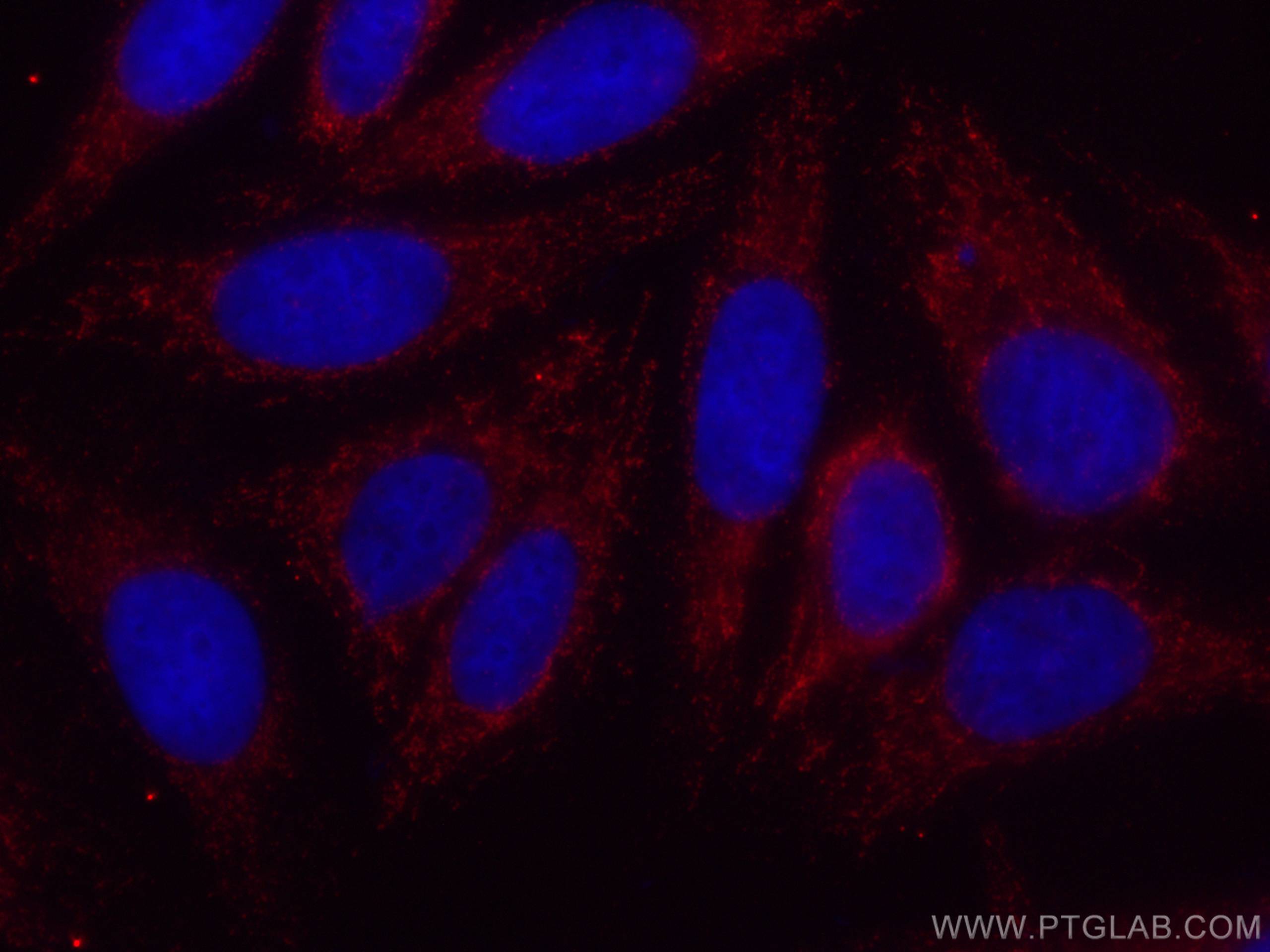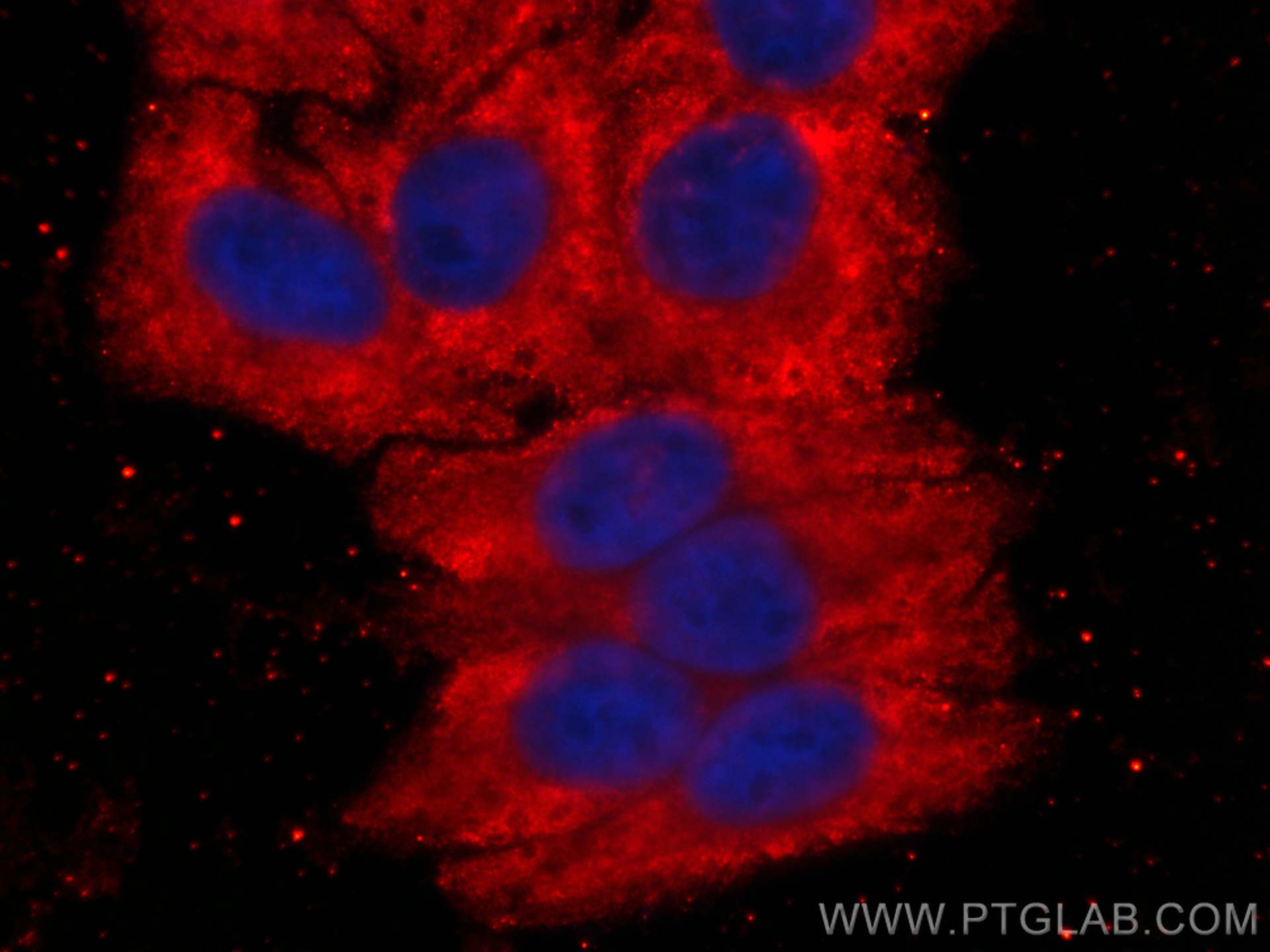- Featured Product
- KD/KO Validated
USP13 Monoklonaler Antikörper
USP13 Monoklonal Antikörper für IF/ICC
Wirt / Isotyp
Maus / IgG1
Getestete Reaktivität
human
Anwendung
IF/ICC
Konjugation
CoraLite®594 Fluorescent Dye
CloneNo.
6E8C10
Kat-Nr. : CL594-66176
Synonyme
Geprüfte Anwendungen
| Erfolgreiche Detektion in IF/ICC | HepG2-Zellen |
Empfohlene Verdünnung
| Anwendung | Verdünnung |
|---|---|
| Immunfluoreszenz (IF)/ICC | IF/ICC : 1:50-1:500 |
| It is recommended that this reagent should be titrated in each testing system to obtain optimal results. | |
| Sample-dependent, check data in validation data gallery | |
Produktinformation
CL594-66176 bindet in IF/ICC USP13 und zeigt Reaktivität mit human
| Getestete Reaktivität | human |
| Wirt / Isotyp | Maus / IgG1 |
| Klonalität | Monoklonal |
| Typ | Antikörper |
| Immunogen | USP13 fusion protein Ag10506 |
| Vollständiger Name | ubiquitin specific peptidase 13 (isopeptidase T-3) |
| Berechnetes Molekulargewicht | 863 aa, 97 kDa |
| Beobachtetes Molekulargewicht | 97 kDa |
| GenBank-Zugangsnummer | BC016146 |
| Gene symbol | USP13 |
| Gene ID (NCBI) | 8975 |
| Konjugation | CoraLite®594 Fluorescent Dye |
| Excitation/Emission maxima wavelengths | 588 nm / 604 nm |
| Form | Liquid |
| Reinigungsmethode | Protein-G-Reinigung |
| Lagerungspuffer | PBS with 50% glycerol, 0.05% Proclin300, 0.5% BSA |
| Lagerungsbedingungen | Bei -20°C lagern. Vor Licht schützen. Nach dem Versand ein Jahr stabil. Aliquotieren ist bei -20oC Lagerung nicht notwendig. 20ul Größen enthalten 0,1% BSA. |
Hintergrundinformationen
USP13(Ubiquitin carboxyl-terminal hydrolase 13) is also named as ISOT3 and belongs to the peptidase C19 family. It is involved in ubiquitin-dependent protein catabolism. USP13 is responsible for MITF deubiquitination, utilizing a short hairpin RNA library against known deubiquitinating enzymes. This protein has 2 isoforms produced by alternative splicing.
Protokolle
| PRODUKTSPEZIFISCHE PROTOKOLLE | |
|---|---|
| IF protocol for CL594 USP13 antibody CL594-66176 | Protokoll herunterladen |
| STANDARD-PROTOKOLLE | |
|---|---|
| Klicken Sie hier, um unsere Standardprotokolle anzuzeigen |



